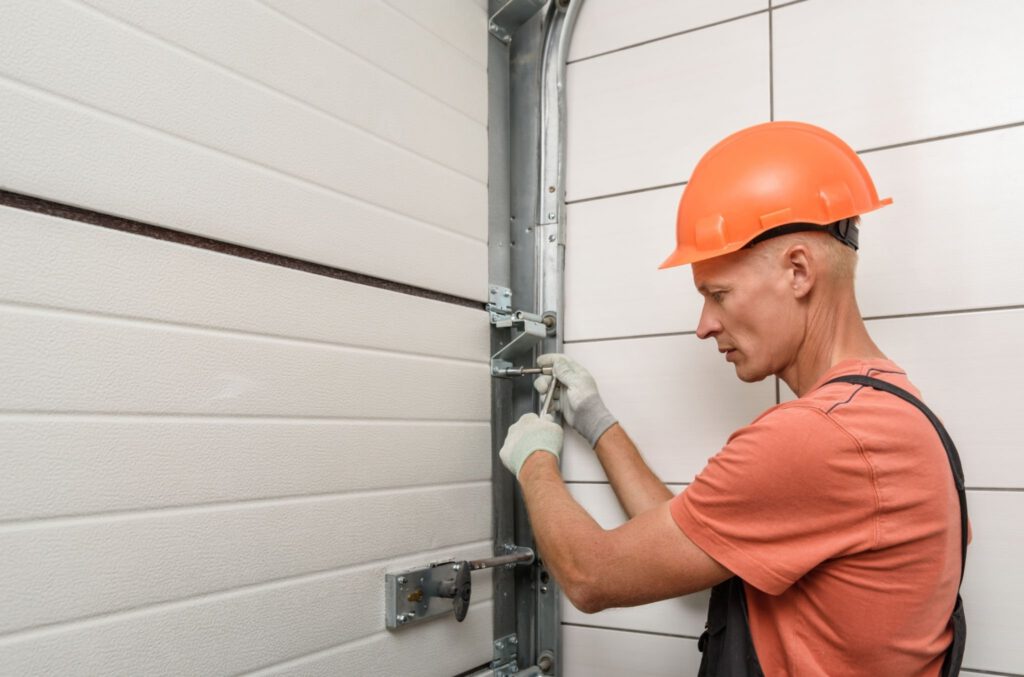Garage doors are essential to the security and functionality of your home. The springs that hold the weight of your garage door are one of the most crucial components. They ensure smooth and efficient operation of your garage door an and to prevent any potential accidents or damages.
However, not all garage door springs are the same. There are two main types of garage door springs, torsion spring, and extension springs, and they both have unique benefits. In this blog, we’ll discuss the advantages of each type of garage door spring to help you decide which one is the best fit for your garage door.
Why Do Garage Doors needs Springs?
Have you ever wondered why garage doors need springs? Most people haven’t given it much thought, so you probably haven’t either. After all, when you press the button on your garage door opener, the door opens or closes, and you don’t need to know much else. However, garage door springs are an essential component of your garage door system.
The basic function of a garage door spring. The primary job of a garage door spring is to counterbalance the weight of the garage door. Garage doors can weigh hundreds of pounds; without a properly functioning spring system, it would be almost impossible to open and close the door manually.
Furthermore, garage door springs are essential for the overall function and longevity of your garage door system. Without a properly functioning spring system, other components of your garage door, such as the opener and the tracks, could be subjected to excessive wear and tear, leading to costly garage door repairs.
About Torsion Springs
Torsion springs are a popular choice for garage doors and are widely used in most modern homes. These springs are mounted above the garage door and attached to a shaft that runs through the center of the springs. When you open your garage door, the torsion spring unwinds and releases the stored energy to lift the door. When the door is closed, the torsion spring winds back up, storing energy for the next time you need to open the door.
One of the main benefits of torsion springs is their durability. They can last for many years and require less maintenance than other types of springs. Torsion springs also provide better balance and smoother operation than extension springs, making them a preferred choice for heavier garage doors.
Torsion springs are located at the top of the garage door and use torque to lift and lower the door. They are known for their durability and long lifespan. Here are some of the benefits of torsion springs:
- Longevity: Torsion springs have a longer lifespan than extension springs, which means they don’t require frequent replacement. This translates to a lower cost of maintenance in the long run.
- Stability: Torsion springs are more stable than extension springs because they are mounted on a stationary metal shaft. This makes them less prone to wear and tear and helps ensure the smooth and consistent operation of your garage door.
- Safety: Torsion springs are considered safer than extension springs because they are located at the top of the garage door, away from people and pets. In the event of a spring failure, the torsion spring is less likely to cause serious injury or damage.

About Extension Springs
Extension springs are another type of garage door springs that are mounted on either side of the garage door. These springs extend and contract to help lift and lower the garage door. Extension springs are typically less expensive than torsion springs, which makes them a popular choice for homeowners on a budget.
One of the key benefits of extension springs is their simplicity. They are easy to install and replace, making them a popular choice for DIY enthusiasts. They also require less space than torsion springs, which can benefit those with smaller garages.
Extension springs are located on the sides of the garage door and use tension to lift and lower the door. They are known for being cheap and easy to use. Here are some of the benefits of extension springs:
- Cost-effective: Extension springs are generally less expensive than torsion springs, making them a popular choice for homeowners on a budget.
- Easy to install: Extension springs are relatively simple, saving you time and money on installation costs.
- Smooth operation: Extension springs provide a smooth and quiet operation of your garage door, which is ideal for homes with living spaces near the garage.
While extension springs are an excellent choice for many homeowners, it is worth noting that they do have some drawbacks. Extension springs have a shorter lifespan than torsion springs and are more prone to wear and tear. Additionally, they can be more dangerous than torsion springs if they break, as they can whip around and cause injury or damage.
However, extension springs have some downsides. They can be less durable than torsion springs and may require more maintenance. Additionally, they can be more dangerous if they break due to the high tension they hold.
How reliable are Springs for Garage Doors?
Garage door springs are generally reliable, but like any mechanical component, they can wear out over time and eventually fail. The lifespan of a garage door spring depends on several factors, including the quality of the spring, the frequency of use, and the garage door’s weight.
Torsion springs are generally more reliable than extension springs because they are stronger and last longer. Most torsion springs are rated for around 10,000 cycles, which means they can be opened and closed approximately 10,000 times before they need to be replaced. However, some high-quality torsion springs can last up to 20,000 cycles or more.
On the other hand, extension springs have a shorter lifespan and are typically rated for around 5,000 cycles. This is because they are stretched out when the door is closed and can weaken over time, leading to failure.
The frequency of use is another factor that can affect the lifespan of garage door springs. A garage door that is used frequently will put more wear and tear on the springs, which can cause them to wear out more quickly. On the other hand, a garage door that is used infrequently will last longer.
The garage door’s weight is also a significant factor in determining the lifespan of the springs. A heavier garage door will put more stress on the springs, causing them to wear out more quickly. That’s why it’s essential to have the right size and type of springs installed for your garage door.
To ensure the reliability of your garage door springs, it’s essential to have them checked regularly by a professional. A trained technician can inspect the springs for signs of wear and tear and replace them if necessary. Additionally, regular maintenance, such as lubricating the springs and other components, can help to extend their lifespan and prevent failure.
Choosing the Right Garage Door Spring with Atlas Door Company in Joshua, TX
The type of garage door spring you choose for your home is an important decision that affects both the functionality and safety of your garage door. Torsion and extension springs have unique benefits and drawbacks; the choice ultimately comes down to your specific needs and budget. At Atlas Door Company, we offer a range of high-quality garage door springs, including reliable options for garage door repair and professional installation services to ensure your garage door operates smoothly and safely for years.
Contact us today or visit our website to learn more about the products and services we offer in the Texas area.
